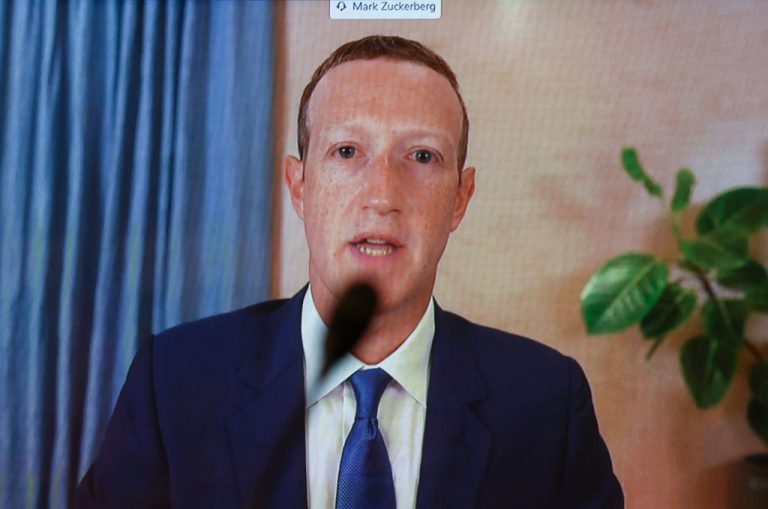In 2018, Facebook CEO Mark Zuckerberg admitted in a congressional testimony that Silicon Valley is an “extremely left-leaning place” and that concerns over political bias were “fair.” The platform has been accused of censoring conservative views several times. A report published by the Wall Street Journal published on Oct. 24 has exposed how Facebook censored Breitbart and other conservative outlets on its platform.
In 2016, Facebook introduced two tools following the presidential election. The tools “Information Engagement” and “Sparing Sharing” were introduced to supposedly remove misinformation from the platform. Sparing Sharing reduced the spread of posts shared by the network’s most engaged users; Information Engagement cut down the spread of content that is shared without reading.
Facebook’s own study in 2019, dubbed “political ideology analysis,” admitted that these two tools suppressed Breitbart traffic from the platform by 20 percent. Without these tools, traffic to outlets like The Epoch Times would rise by 11 percent, Western Journal by 16 percent, and Washington Times by 18 percent.
The study aimed to prepare Facebook for the consequences of stopping the two tools, including potential accusations of bias. “We could face significant backlash for having ‘experimented’ with distribution at the expense of conservative publishers,” a researcher said in the memo. Eventually, Facebook decided to ditch Information Engagement, though it retained Sparing Sharing.
Breitbart was specifically targeted for suppression. One employee at Facebook proposed removing Breitbart from the platform’s News Tab last year at the company’s “racial justice” chat board.
Success
You are now signed up for our newsletter
Success
Check your email to complete sign up
The employee was disturbed by the fact that Breitbart was covering the violence unleashed during BLM protests. The person argued that the media outlet’s reporting on the issue was “emblematic of a concerted effort at Breitbart and similarly hyper partisan sources (none of which belong in News Tab) to paint Black Americans and Black-led movements in a very negative way.”
In a discussion thread titled “Get Breitbart out of News Tab,” Facebook employees discussed ways by which the outlet’s content could be removed from the News Tab. Though an employee suggested removing websites whose Facebook “trust scores” decline, the idea was dismissed due to fears that the policy might affect CNN.
Breitbart was relegated to the “second tier” in Facebook’s News Tab. The first tier consists of curated news from outlets like WSJ, NYT, and WaPo, which are paid-for content. Outlets in the second tier aren’t paid.
“It is not news to us that Facebook has effectively suppressed our content… Still, we’ve been crushing our establishment news competitors in engagement for years, so imagine what would happen if Facebook treated Breitbart equally with other top news publishers,” a Breitbart spokeswoman told WSJ.
The revelation of Facebook’s targeted suppression of conservative voices has attracted widespread criticism. “Facebook has been intentionally suppressing traffic to Breitbart… Not because of policy violations, but to protect liberal politicians.”
“Any company that acts like a wing of the Democratic Party should not enjoy Section 230 protections,” Republican Senator Tom Cotton Cotton told Breitbart. Section 230 protects social media companies from being held responsible for the content that users post.
















